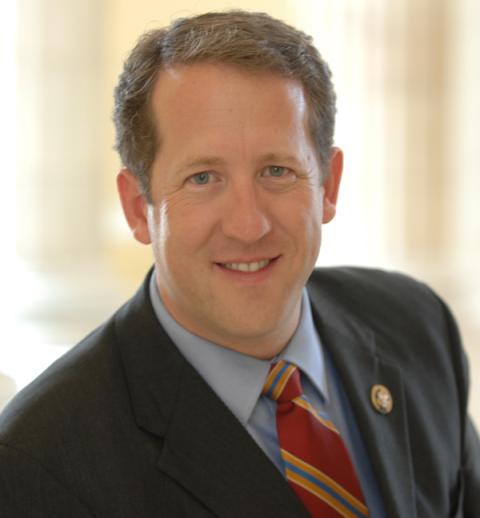![]()

By Rep. Adrian Smith
The costly consequences of unnecessary, burdensome regulations represent one of the greatest threats to future American prosperity. In fact, a 2024 report produced by the Biden-Harris administration showed, in the year prior, the annual government-wide paperwork burden on Americans increased by 1.6 billion hours to more than 12.1 billion. This is the highest total on record. When paired with runaway inflationary spending, this overregulation was a recipe for stifling economic growth. In 2024 alone, unelected bureaucrats imposed regulations costing taxpayers more than $1.34 trillion. Federal policy which encourages prosperity and growth for Americans must minimize regulations and respect the will of the people and the rights of individuals and state and local authorities.
On day one of his second term, President Trump rescinded 56 burdensome executive orders and presidential memoranda which were issued under President Biden. I applaud this decisive action to lift onerous rules as well as President Trump’s requirement for federal agencies to cut numerous regulations for every new rule they propose—on a ten to one ratio.
President Trump is following through to restore government accountability as Americans elected him to do, and Congress must do the same. It was a historic win for representative democracy when the Supreme Court ruled in favor of the right of the American people to check abusive overreach in the Executive Branch by overturning precedent from the 1984 case Chevron v. Natural Resources Defense Council. Known as the Chevron doctrine, this precedent allowed out-of-touch agencies in Washington such as the Environmental Protection Agency (EPA) to extend their reach into the lives and livelihoods of Americans and dictate binding rules and standards which clearly had no basis in statute or congressional intent by deferring to the decision-making of bureaucrats as the final arbiter of federal regulations. The 2024 decision rightfully reaffirmed the constitutional authority of the Legislative Branch, whose elected members are more appropriately accountable to the public.
To unleash economic growth American industry needs long-term certainty. Certainty is best provided by honoring congressional intent in the laws written by Congress, rather than manipulating the rulemaking process to push a radical agenda. In the case of the Waters of the United States (WOTUS) rule, under the Obama and Biden administrations, the EPA attempted to reinterpret federal statute to micromanage even the puddles and ditches on farms and ranches across the country, seriously threatening the rights of individuals and state and local authorities.
The legal fight over interpretation of WOTUS caused confusion and unclear guidance which harmed rural Americans’ ability to plan for the future and steward their own property. I have consistently advocated for commonsense WOTUS policy which limits negative impacts on rural Americans. I am grateful President Trump’s newly appointed administrator of the EPA articulated his understanding of these negative WOTUS impacts during his confirmation hearings.
Unfortunately, President Biden’s administration spent his last months in office ramming through a long list of policies American voters had already rejected. To enhance Congress’ ability to rein in President Biden’s lame duck spree of burdensome rulemaking, this week I supported passage of the Midnight Rules Relief Act (H.R. 77). Through the Congressional Review Act, Congress has the power to reverse poorly considered regulations issued by the Executive Branch. H.R. 77 will increase the efficiency of this process by allowing Congress to eliminate multiple regulations under one joint resolution of disapproval.
Cutting red tape and allowing decisions to be made as close to the people they impact as possible clears the way for prosperity. Donald Trump and House Republicans campaigned on promises to make the government accountable to Americans and to cut regulatory burdens, and we are delivering on those promises. I remain committed to identifying government-imposed burdens affecting Third District Nebraskans and will never stop working to address them.
